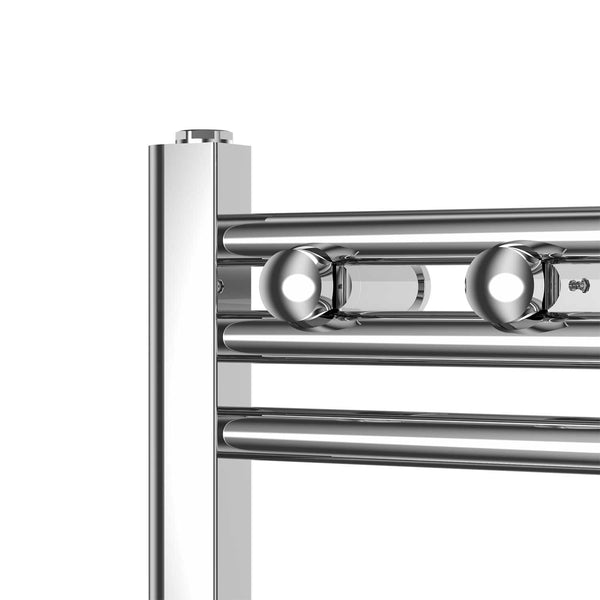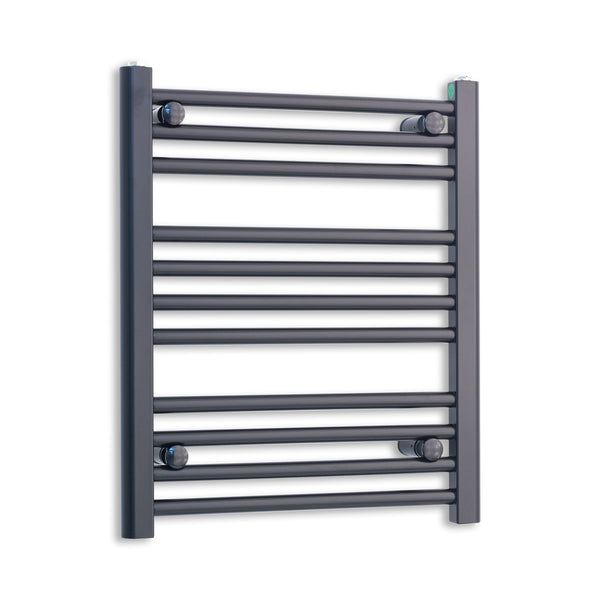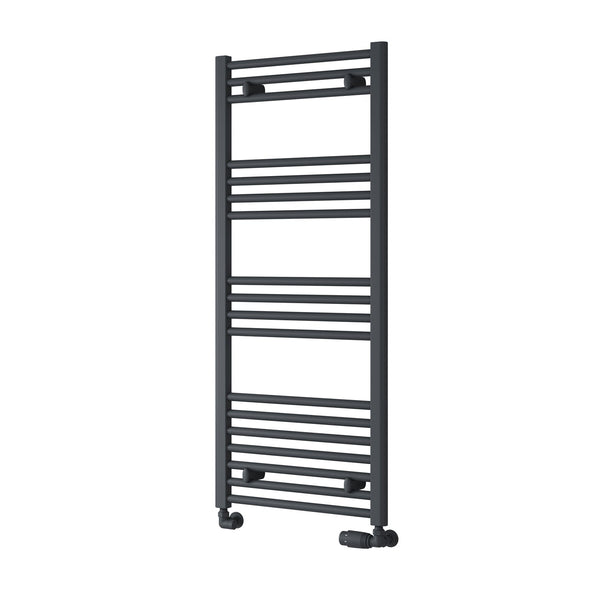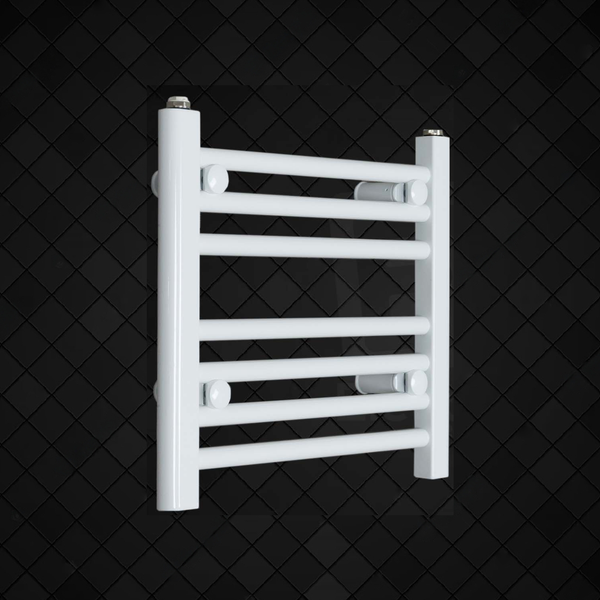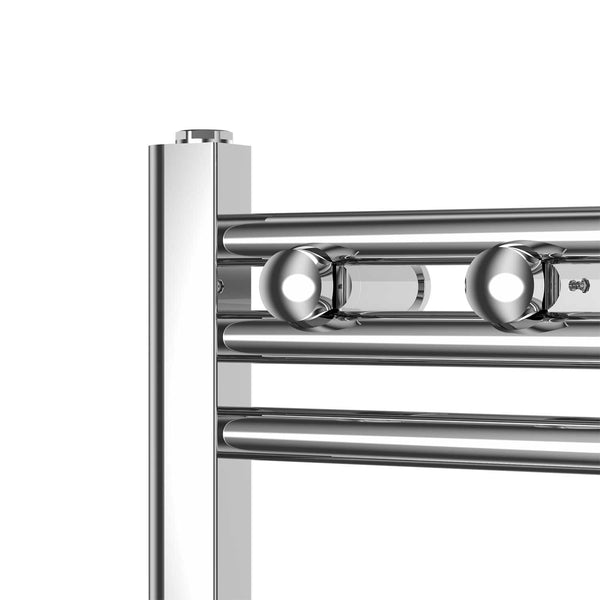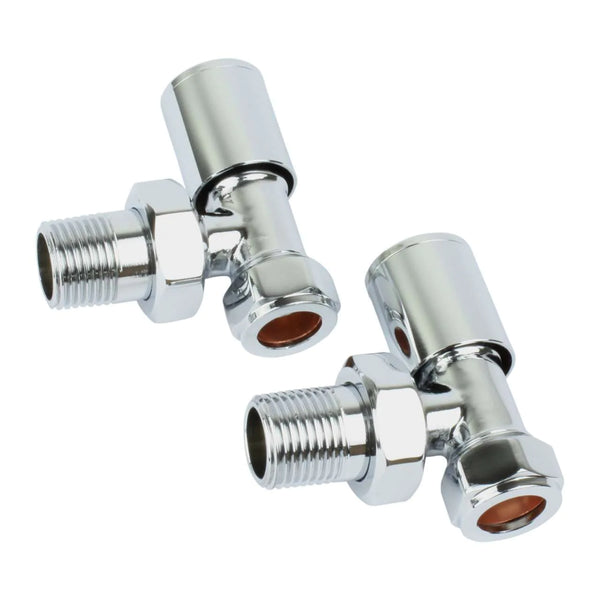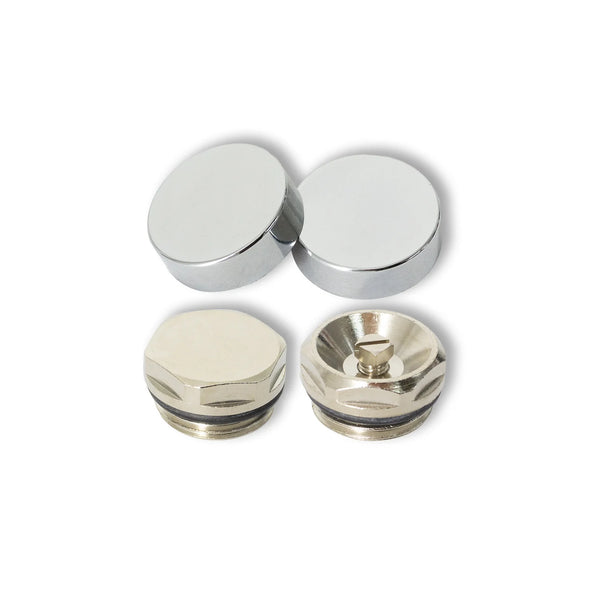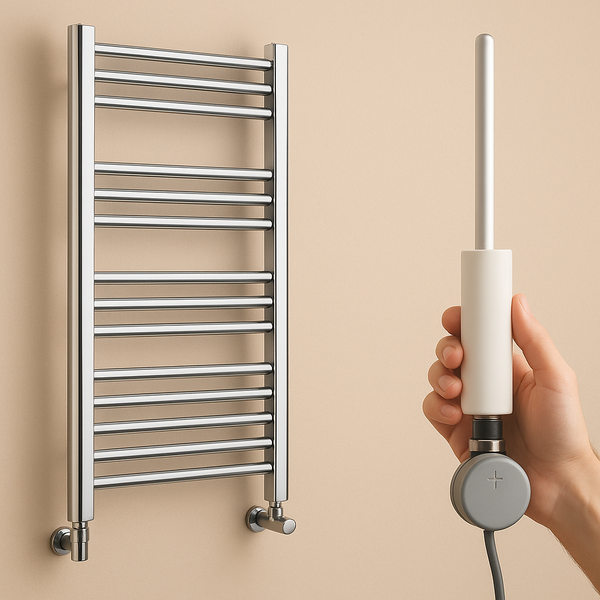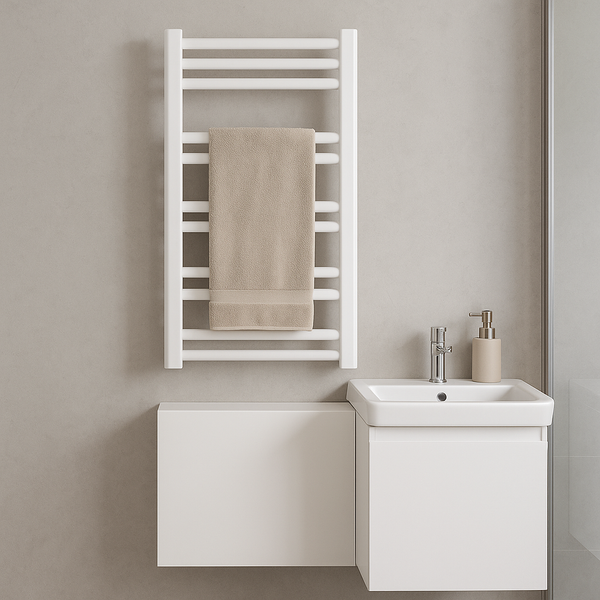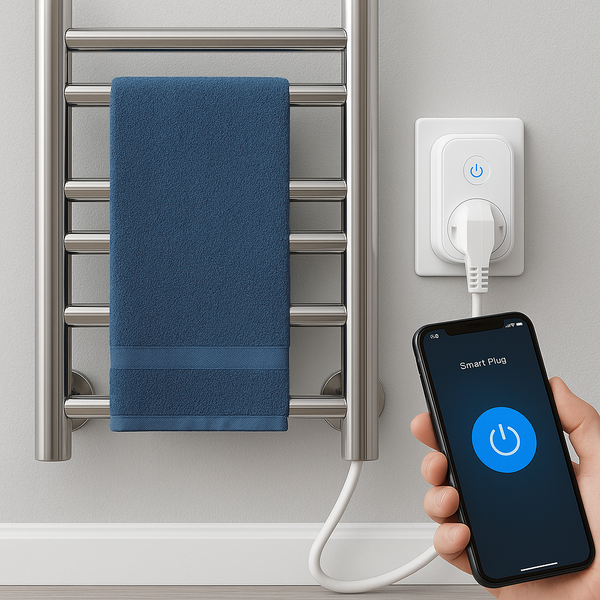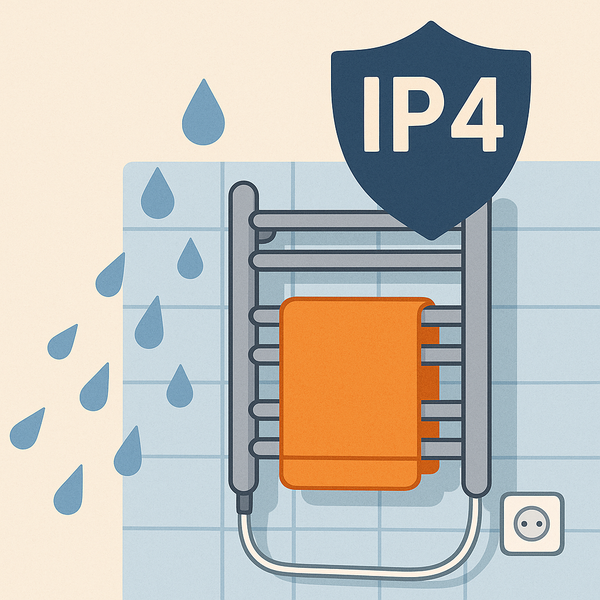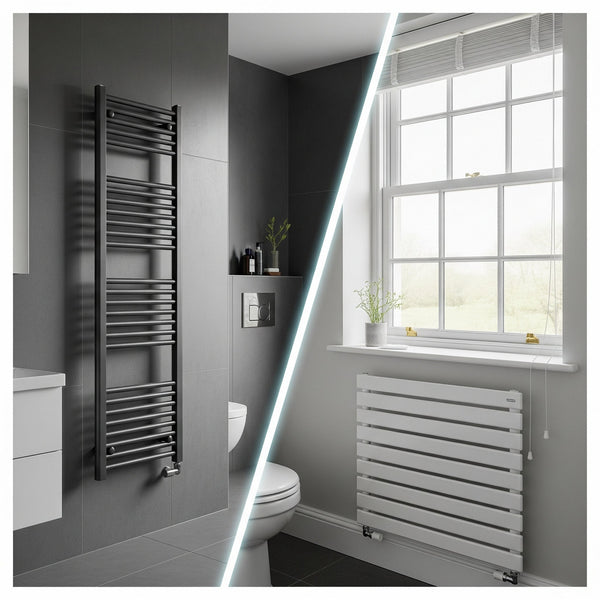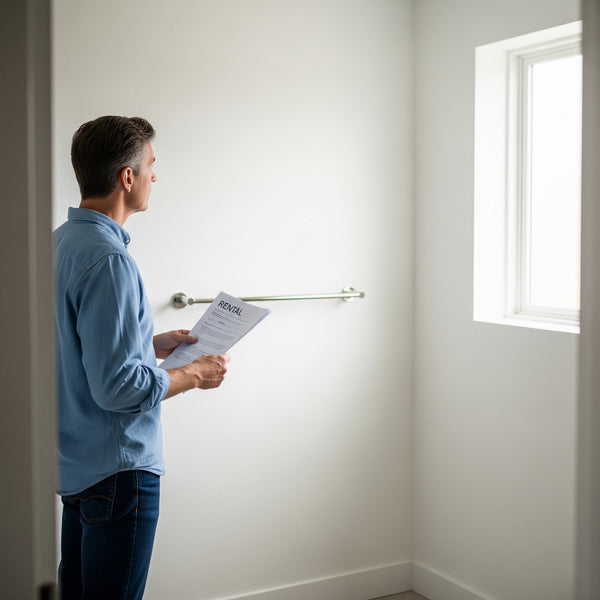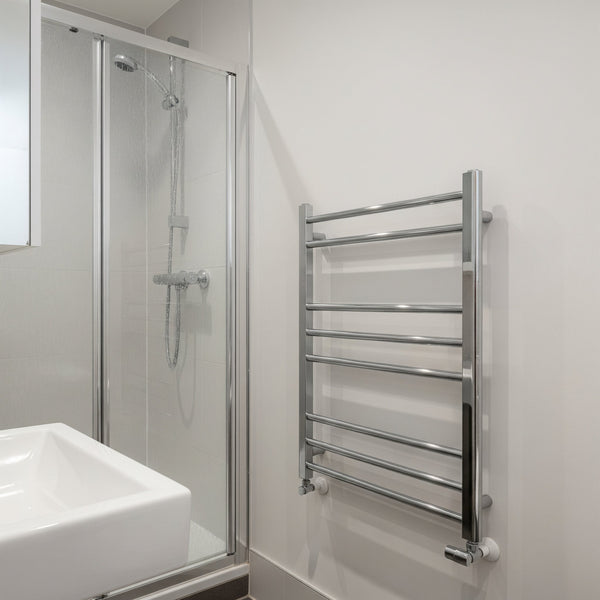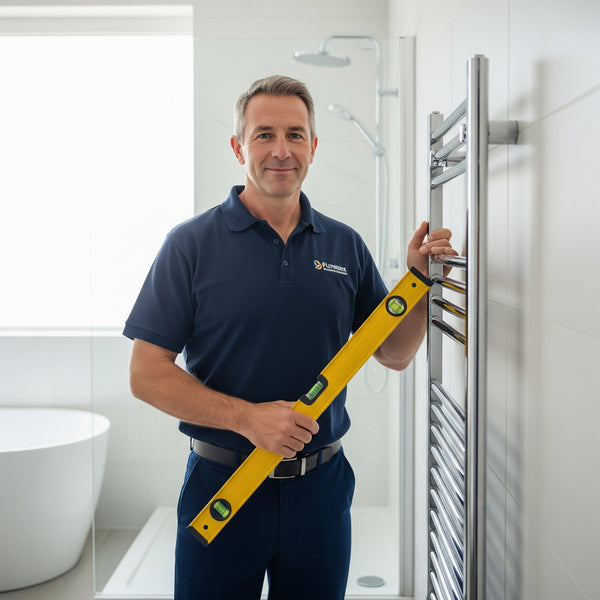What Do Those Strange Noises (Clicking, Banging) from Your Towel Rail Mean?
Your central heating system is a powerful workhorse, but it isn't always a silent one. From time to time, you might hear a strange click, a persistent gurgle, or even a loud bang coming from the direction of your new towel rail or radiators. These noises can be unsettling, often leaving you wondering if there's a serious problem looming. The good news is that most of these sounds are harmless or are symptoms of common, easily fixable issues.
Before you start worrying, let's decipher what your towel rail is trying to tell you. This expert guide from Companyblue will act as your translator, breaking down the most common sounds, explaining what causes them, and telling you exactly what you need to do about them. Let's turn down the volume on your heating system's mysterious soundtrack.

The Sound: Gurgling, Bubbling, or Trickling Water
What it Means: This is, by far, the most common sound you will hear from a radiator. It is the definitive sign of trapped air inside your towel rail. The sound is literally the noise of water flowing into a space that is only partially full, bubbling up past the pocket of air.
The Consequence: A noisy and inefficient radiator. The trapped air creates cold spots (usually at the top), preventing the towel rail from heating up fully and delivering its maximum heat output.
The Easy Fix: Bleed the towel rail. This is a simple 2-minute job. Use a radiator bleed key to slowly open the bleed valve at the top of the rail. You'll hear the air hiss out. As soon as a steady stream of water appears, close the valve. Problem solved.
The Sound: Repetitive Clicking or Ticking
What it Means: In most cases, this sound is completely normal. It's the noise of metal expanding and contracting. As hot water rushes into the cold metal of the towel rail and the surrounding copper pipes, they expand slightly. As they cool down, they contract. This movement can cause small 'tick' or 'click' sounds, especially where pipes pass through floorboards or are held by brackets.
The Consequence: Usually, none at all. It's just the normal sound of a heating system working.
The Fix: Generally, no fix is needed. If the sound is particularly loud or annoying, it might be due to a pipe being too tight against a floorboard or joist. A plumber can sometimes add felt or packing around the pipe to cushion it, but for most, this is a sound to get used to.
The Sound: Loud Banging, Clanking, or Hammering
What it Means: This alarming sound can have a couple of causes. The most dramatic is a phenomenon called 'water hammer,' where a fast-closing valve causes a shockwave in the pipes, but this is relatively rare in domestic heating. More commonly, a loud bang is caused by significant expansion or movement in the pipework. It could be a pipe that is poorly secured, which moves and hits against a joist or floorboard as it heats up. It can also sometimes be caused by a faulty thermostatic radiator valve (TRV) that isn't opening or closing correctly.
The Consequence: While often not immediately dangerous, it's a sign of significant stress on the pipework which could weaken joints over time. It's also very disruptive.
The Fix: Investigate and Secure. Try to locate the source of the bang. It's often coming from the pipes under the floor rather than the rail itself. If you can access them, see if the pipes are securely clipped. If you suspect a faulty TRV, swapping it for a new one may solve the problem. However, for persistent, loud banging, it's wise to call a plumber to investigate properly.
The Sound: Whistling, Rumbling, or 'Kettling'
What it Means: This sound, which resembles a kettle boiling, almost always originates from your boiler, not the towel rail, even if you hear it echoing through the pipes. It is a classic symptom of limescale or sludge build-up on the boiler's heat exchanger. The deposits create hotspots that cause the water to boil, steam, and collapse in tiny, rapid bursts, creating the 'kettling' noise.
The Consequence: A significant drop in your boiler's efficiency (meaning higher energy bills) and immense strain on the component, which can lead to a costly breakdown.
The Fix: This is a job for a professional. You need to call a Gas Safe registered heating engineer. They will diagnose the issue and the solution is usually a professional system flush (either a chemical flush or a powerflush) to remove the limescale and sludge from the system. They will then add a corrosion inhibitor to prevent it from returning.
The Sound: A Faint, Constant Hissing or Dripping
What it Means: Don't ignore these subtle sounds. A constant, faint hiss when the heating is on often means that the bleed valve is not quite closed, and a tiny amount of air is still escaping. A dripping sound is exactly what it sounds like a small leak.
The Consequence: A hissing valve can introduce more air into the system over time. A drip, no matter how small, will eventually cause water damage and can lead to a drop in boiler pressure.
The Fix: Tighten the connection. For a hiss, use your bleed key to give the bleed valve a gentle clockwise nip to fully close it. For a dripping sound, identify the source (usually one of the valve nuts) and tighten it slightly with a spanner as detailed in our 'How to Fix a Leaking Towel Rail' guide.
FAQ: Decoding Your Heating Noises
Here are our answers to a few more common questions about noisy radiators.
Is a clicking towel rail dangerous?
No, in almost all cases, a clicking or ticking sound is completely harmless. It is simply the sound of the metal components expanding as they get hot and contracting as they cool. It's a normal characteristic of most central heating systems.
Can I fix a loud banging noise myself?
It's best to leave this to a professional. While you can check for obvious things like a loose pipe under accessible floorboards, the cause can be hard to pinpoint. A plumber can correctly diagnose whether it's a pipework issue, a faulty valve, or something else, and apply the correct fix without causing further issues.
My radiator only makes noise when it's heating up or cooling down. Is that normal?
Yes, this is very normal and strongly points to thermal expansion and contraction. The sounds (usually clicks and ticks) are most prominent when the temperature change is happening. Once the radiator is at a stable hot temperature, the noises should stop or become much less frequent.
The noise is coming from the pipes in the wall, not the towel rail. What does that mean?
This reinforces the idea that the noise is related to the pipework itself, not the radiator. It's most likely the sound of the pipes expanding and rubbing against the wall structure or joists. As long as it's a ticking sound, it's usually harmless. If it's a loud bang, it's worth having a plumber check the pipe fixings.
When should a noise make me call a professional immediately?
You should call a Gas Safe registered engineer immediately if you hear a 'kettling' (whistling or rumbling) noise, as this indicates a problem inside your boiler that needs urgent attention to prevent damage. For persistent loud banging or any noise accompanied by a visible leak you can't fix, it's also wise to call a plumber promptly.
